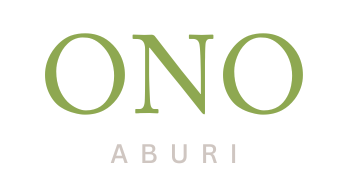Buying land or a house in Ghana can be an exciting experience. But many first-time buyers get caught off guard, not because of the price on the listing, but because of the hidden costs that come with it.
These are the quiet expenses that don’t show up in ads or brochures, but they add up quickly. If you’re not prepared, they can slow you down or even derail your plans. That’s why in this guide, we break down the most common hidden property costs in Ghana, especially if you’re buying for the first time.
Stay with us.
Land Documentation and Registration Fees
When buying land, the price you agree on isn’t the final cost. You’ll still need to pay for site plan preparation, indenture (land agreement), land title registration at the Lands Commission, and stamp duty.
Depending on the location, you may also have to pay for land demarcation or surveying. These fees in Ghana can cost anywhere from GHS 2,000 to GHS 10,000 or more. If the land is large or in a high-demand area, you can expect to pay more.
Legal Fees and Agent Commissions
Hiring a lawyer is important; don’t skip it. But legal services aren’t free. Lawyers typically charge between 3% and 10% of the property price, depending on the work involved.
If you work with an agent or broker, they’ll also take a cut, which is usually a 5% to 10% commission from either the buyer or seller (sometimes both). Always ask upfront what fees apply before committing.
Key: Get every agreement in writing. And don’t rely on verbal promises.
Building Permit and Local Assembly Charges
If you’re buying land to build on, you’ll need a building permit from the district assembly. This is one of the most overlooked hidden property costs in Ghana.
Permit fees vary by location and building size but can range from GHS 3,000 to GHS 15,000 or more. You may also need a site inspection report, structural or architectural drawings, and environmental or fire service clearance (for bigger projects).
And yes, each comes with its fee.
Utility Connection Charges
Buying land or a house doesn’t mean you’ll immediately have water and light. For bare land, you’ll need to connect to the Ghana Water Company Limited (GWCL) system and the national grid via the Electricity Company of Ghana (ECG), and well, these aren’t free.
For electricity, you’ll have to pay an application fee, wiring inspections, and meter cost. To get water, you have two options: either pay a pipe connection fee and meter installation costs to the GWCL.
If, however, you decide to go with a borehole (in the absence of Ghana Water), you may pay up to GHS 15,000–20,000 for drilling and a pump.
Again, you might also have to budget for septic tanks or soakaways, especially in non-sewered areas.
Property Taxes and Ground Rent
Once you own the property, ongoing costs begin. These include property rates (paid to the local assembly annually) and ground rent, especially if the land is stool, family, or government-owned.
Many buyers forget about these fees after purchase. But failure to pay can lead to legal trouble or extra penalties later on.
Construction-Related Surprise Costs
If you’re building from scratch, even the best budget can face surprises. Things like rising cement prices, transport fees for materials, and labour shortages during peak seasons. You can also have poor soil (which would require extra foundation work).
The community where you’re building may also have some levies for road grading or security
That’s why buying a house in Ghana always includes setting aside at least 10–20% extra for unexpected building costs.
Bank Fees
Now, if you’re buying through a mortgage, don’t forget the hidden bank charges: processing fees, valuation fees (the bank will inspect the property first), legal review fees, and insurance requirements.
These fees can add thousands of cedis to your overall cost, even before your first monthly payment begins.
Fencing and Land Security
So, you finally made a payment for the land. That’s great. But until you fence it, anyone could encroach on it.
Fencing costs can range from GHS 10,000 to GHS 50,000, depending on the size of the land and the materials used. Some buyers also install temporary structures or hire caretakers until they can start building. All of these don’t come free.
Quick Summary: Hidden Costs You Should Expect
| Hidden Cost | Estimated Range |
|---|---|
| Land registration | GHS 2,000–10,000+ |
| Legal & agent fees | 5%–15% of the property price |
| Building permit | GHS 3,000–15,000+ |
| Utility connections | GHS 5,000–25,000 |
| Property taxes & rent | Varies yearly |
| Construction surprises | +10%–20% of the budget |
| Mortgage-related fees | GHS 5,000–15,000 |
| Fencing | GHS 10,000–50,000 |
Conclusion
When buying a house or land in Ghana, the purchase price is only the beginning. The real cost includes all the hidden property costs that most sellers won’t tell you about.
That’s why planning is so important. Talk to experts. Visit the Lands Commission. Ask questions, lots of them. And always add a buffer to your budget.
The good news, however, is that once you know what to expect, you can plan better and avoid shocks. And when you finally hold the keys to your new home, it’ll be well worth it.
